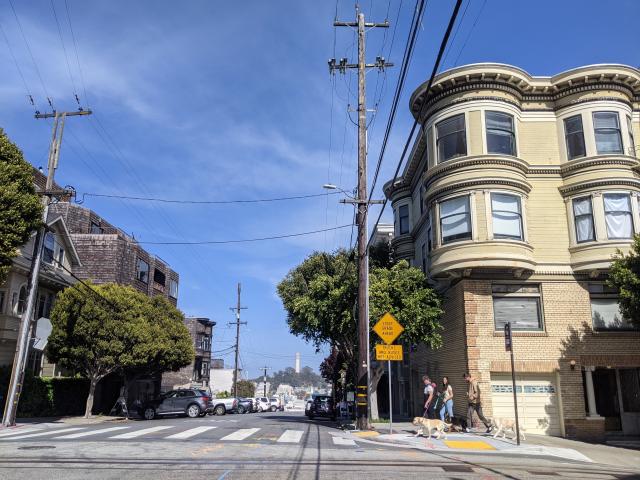The Amount of Money People Think They Need Is Absolutely Ridiculous

For a month or two, being in quarantine was cool. It was like any other fad. You knew everybody else was doing it, so you were into it.
Then, as people got sick of staying at home, this fad, like any other, crumbled.
The social media proclamations of a new normal and taking lessons and good habits— particularly money-related ones — you learned during quarantine with you to “the other side of this” died alongside the novelty of staying at home.
Not for everybody, but definitely for large swaths of people.
The pandemic forced many people into a lower cost of living.
If you were lucky enough to have sufficient savings, keep working, or even increase your income over the last year-plus, all the better. Unemployment definitely provided breathing room as loads of people reinvented themselves personally and professionally.
Good stuff. No doubt.
I’m blown away by the things people can accomplish when a government safety net gives them more than money. It gives them time to focus on what matters and what they actually want to do to earn money.
I have countless friends who crushed quarantine thanks, in part, to this support and the welcomed reset.
According to an annual Charles Schwab study on wealth in the San Francisco Bay Area, people also reset their expectations on the amount of money required to live and live well:
Source: Charles Schwab
As I noted the other day, I’m not a fan of net worth as a metric, however it’s a good way to gauge sentiment. It’s particularly relevant if you own a home or believe in home ownership.
I’m a no on both counts.
Anyhow, the pandemic probably deserves some credit for the variation between the 2020 and 2021 numbers. However, the 2021 data remains insanely high. Even for San Francisco and the Bay Area.
I wish Schwab would have reported differences between homeowners and renters as well as between people who aspire to own a home and individuals happy to most likely rent for the duration.
If they collected this data, I’m certain it would produce additional meaningful insight.
Since we don’t have that data, we’ll speculate!
I have lived in a big city — San Francisco or Los Angeles — for 20 of the last 22 years. I’m a renter. I know a lot of other renters. People who will rent for the rest of their lives.
We’re not kicking and screaming.
We rent by choice.
We have a renter’s mindset and lifestyle.
In my experience, this tends to — for many of us — produce a lower cost of living.
First, you’re not going to buy a house and take on a mortgage, which is, in plain speak —
a 30-year obligation — that’s higher than your standard rent payment in an expensive real estate market such as San Francisco or Los Angeles — which requires somewhere around $100,000 upfront to commence, creating equity you’ll never see unless you sell (but you still need a place to live) or take out a loan against your home equity (this would be debt).
So, as you age and forgo home ownership, you’ll most likely have a considerably lower net worth than seven figures-plus. This is one reason why net worth isn’t always a relevant metric.
You’re also not taking on other expenses related to home ownership, outside of the ball and chain of a mortgage. You can make a list of these expenses in your head.
Going a bit deeper in the city living weeds, your choice of car — particularly if you park on the street and don’t live in the most upscale urban neighborhoods — will probably cost you less.
One, you might not drive as much as your home-owning and often suburban counterparts.
Two, you might opt for a not-as-nice car as a homeowner. Again, this is merely based on my experience and my observation of other people’s experiences. But it makes sense. It’s not that you won’t have a nice car. It’s just that you might not invest too much in car ownership because you might not drive as much and you don’t want your “investment” to get all dinged up parking on the streets.
Maybe you spend less on utilities. Thanks to smaller spaces and the temperate climates of Los Angeles and especially San Francisco relative to the generally much hotter suburbs that encircle both cities.
I pay about $50 every two months for gas and electricity. Pretty cheap for an “expensive” city.
Along these lines, I’d also like to see the variation in responses between people who actually live in The City and County of San Francisco and the surrounding, generally more suburban Bay Area counties.
I bet there’s a marked difference.
City living breeds a different type of person.
We often think of people with expensive taste living in so-called expensive cities. These people certainly exist.
However, you can live simply and like nice things. That’s one of my city living mottoes.
People who live in cities are surrounded by so much from aesthetic and cultural standpoints. For many of us who chose to live in cities, particularly major ones, there’s so much more to enjoy and witness than in relatively soulless suburbs.
We don’t need a “bonus room” to fill with furniture we’ll rarely, if ever, use. We don’t need a garage to “tinker” around in or a man cave for escape.
We have the amenities of the city for this.
Counter to many of my suburban-dwelling friends and acquaintances’ intuition, living in a big city — even the ones we brand “expensive” — can produce a lower cost of living than life in the suburbs.
A low cost of living can lead to more modest expectations of how much money you need to live well now and for the duration.
It can also lead to a life where you do things like blow off days and travel extensively now, rather than in a “retirement” that either never comes or doesn’t end up looking like you imagined it.
That’s intuition — based on personal experience in both settings — I can get with.
I’d love to see Schwab — or somebody else — expand this study to tease out differences between renters and homeowners as well as those who aspire to own a home and those who will rent happily ever after.

Four Signs a Person Is Secretly Unhappy with Their Life
- Learn to read a persons contentment and it will improve your relationships and happiness.

Getting Your Ex Back Using a Break Up Spell
- Magic isnt a thing invented yesterday; it is a result of centuries of practices and rituals. People used magic in ancient civilizations since it had

How to Quietly Get People’s Attention in a Noisy World
- Being a calming influence when things go south is a seriously attractive quality

Watershed moment in NYC: New law allows noncitizens to vote
- More than 800,000 noncitizens and “Dreamers” in New York City will have access to the ballot box — and could vote in municipal elections